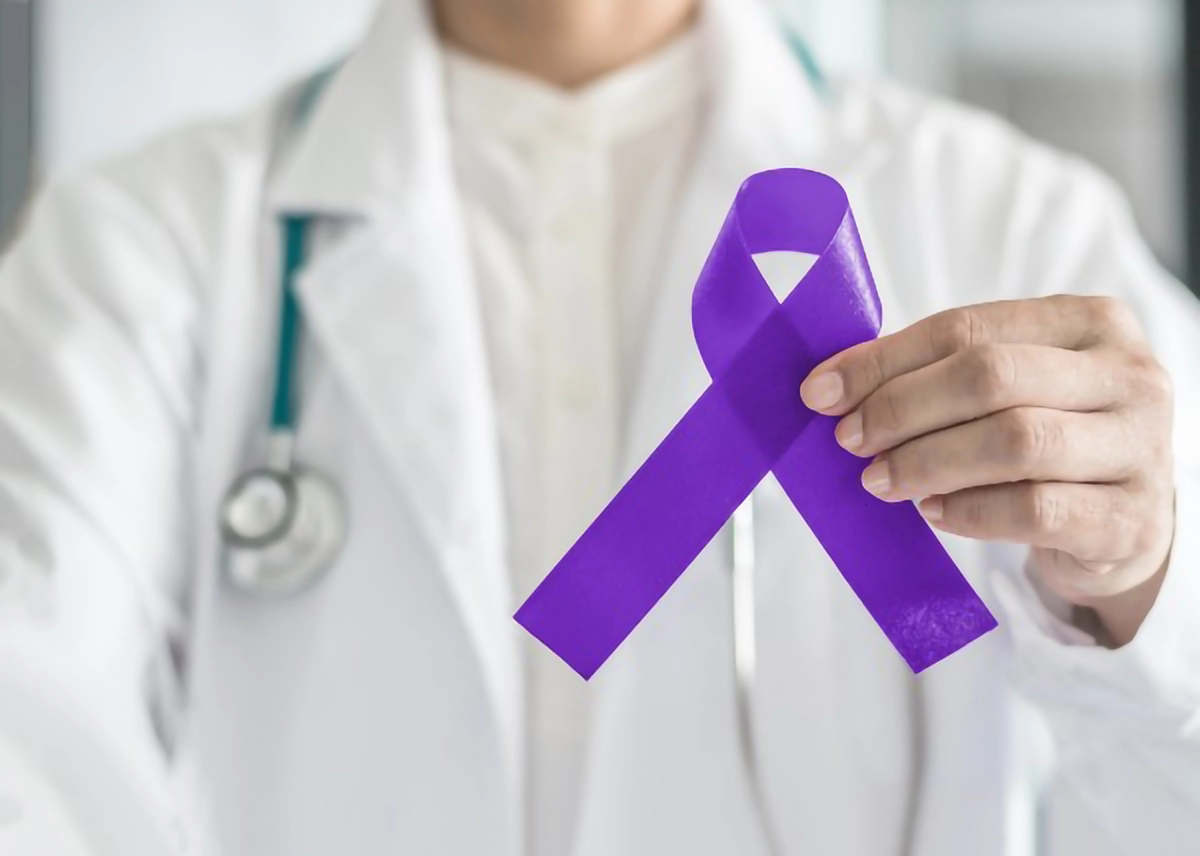We use cookies to help provide you with the best possible online experience.
By using this site, you agree that we may store and access cookies on your device. Cookie policy.
Cookie settings.
Functional Cookies
Functional Cookies are enabled by default at all times so that we can save your preferences for cookie settings and ensure site works and delivers best experience.
3rd Party Cookies
This website uses Google Analytics to collect anonymous information such as the number of visitors to the site, and the most popular pages.
Keeping this cookie enabled helps us to improve our website.
Testicular Cancer Awareness Month
April is Testicular Cancer Awareness Month!
As the name suggests, testicular cancer develops in the testicles, a part of the male reproductive system. Anyone who has testicles can be affected by this form of cancer. This includes men, transgender women and those assigned male at birth. The number of people diagnosed with testicular cancer each year is 2,300.
Testicular cancer usually occurs when cells in the testicles grow to form a tumour. Most testicular cancers develop from cells in the testicles called germ cells. They are called germ cell tumours (GCTs). There are two main types if testicular germ cell tumours:
- seminomas – usually affecting those aged 15 to 50
- non-seminomas – usually affecting those aged 15 – 35
Signs & Symptoms
The early signs of testicular cancer are easy to spot. The symptoms include:
- A lump or swelling in the testicle
- A change in the size of either testicle
- A heavy scrotum
- Discomfort or pain in the scrotum and testicle
- Aches in the back (could occur if the cancer has spread to the lymph nodes also known as the glands)
- Difficulty in breathing and constant feeling of breathlessness (could indicate that the cancer has spread to the lungs)
- Unexplained weight loss

Self-check, you can find information on how to do this on the Macmillan Cancer website. From puberty onwards it is important to check your testicles regularly. Self-examinations are easy and take very little time.
If you have any concerns, or experience any of the symptoms for more than two weeks, it is important to speak to your GP as soon as possible. If diagnosed early, testicular cancer can be treated effectively via surgery, radiation and chemotherapy.
For more information and resources click on the links below:
- NHS Testicular Cancer Symptoms: Overview of symptoms, diagnosis and treatment.
- Macmillan Cancer Support: Information on how to check for testicular cancer, the different stages and the effects
- Cancer Research UK: Along with information on symptoms, diagnosis and treatment, provides data a statistics on diagnosis and survival rates, information on living with testicular cancer and risks and causes.
- Urology Care Foundation: In addition to overviews of symptoms, diagnosis, and treatment etc also gives information on treatment for children.
- Orchid Fighting Male Cancer: Overviews as above with diagrams; also gives information on non-cancerous conditions.
Published: Apr 18, 2023

